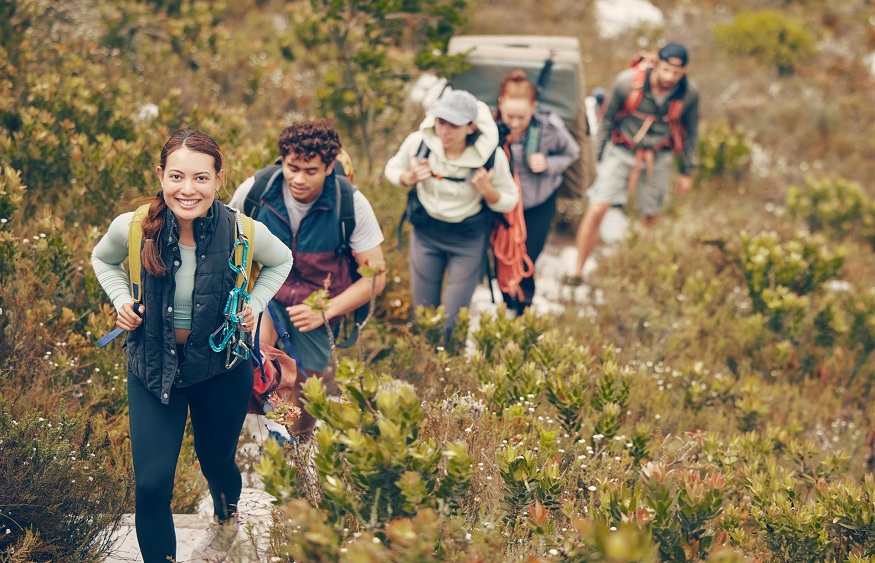Outdoor adventures can be a thrilling and exciting way to spend your time. Whether you are hiking, camping, kayaking, or rock climbing, the great outdoors offers endless possibilities for exploration and adventure. However, with adventure comes risk, and it is important to take precautions to ensure your safety while on outdoor adventures. Here is an essential guide to staying safe while on outdoor adventures.
1. Plan Ahead
The first step in staying safe on any outdoor adventure is to plan ahead. Before you embark on your adventure, research the area where you will be going and the activities you will be doing. Make sure you have a clear understanding of the terrain, weather conditions, and potential hazards. It is also important to share your itinerary with someone you trust so they know where you will be and when to expect you back.
Safety should always be the first priority when going on outdoor adventures. Its principle is deeply embedded in the ethos of Tanzania Safari Packages. These itineraries prioritize the well-being of travellers – as planning ahead ensures a safe and enjoyable expedition. Assess your route, weather conditions, and essential gear. Prioritizing safety is a mindset that allows you to relish the beauty of the outdoors with peace of mind, much like those who journey through Tanzania’s incredible landscapes.
2. Bring the Right Gear
Having the right gear is crucial to staying safe on any outdoor adventure. Make sure you have the appropriate clothing, footwear, and equipment for the activity you will be doing. For example, if you are hiking, you will need sturdy hiking boots, a backpack, and a map or GPS. If you are camping, you will need a tent, sleeping bag, and cooking equipment. Always make sure your gear is in good condition and has been tested before your adventure. Now you can buy double barrel shotgun online from Palmetto State Armory at the best prices, it will keep you safe in wild.
3. Stay Hydrated
Staying hydrated is important for your health and safety while on outdoor adventures. Dehydration can lead to fatigue, dizziness, and other health problems. Make sure you bring plenty of water with you and drink regularly, even if you do not feel thirsty. In addition, avoid alcohol and caffeine, as they can contribute to dehydration.
4. Be Aware of Weather Conditions
Weather conditions can change quickly and unexpectedly while on outdoor adventures. Keep an eye on weather forecasts and be prepared for sudden changes. Bring appropriate clothing for all weather conditions and be prepared to take shelter if necessary. In addition, avoid outdoor activities during severe weather conditions such as thunderstorms, hurricanes, or blizzards.
5. Know Your Limits
Outdoor adventures can be physically and mentally demanding. It is important to know your limits and to listen to your body. If you feel tired or fatigued, take a break and rest. Pushing yourself too hard can lead to injury or illness. It is also important to know your skill level and to choose activities that are appropriate for your experience level.
6. Stay Alert and Be Aware of Your Surroundings
It is important to stay alert and aware of your surroundings while on outdoor adventures. Keep an eye out for potential hazards such as loose rocks, slippery surfaces, or wildlife. If you encounter wildlife, give them plenty of space and do not approach them. In addition, be aware of other people on the trail or in the area and be respectful of their space.
7. Leave No Trace
Outdoor adventures offer the opportunity to enjoy nature and the great outdoors. However, it is important to leave no trace and to respect the environment. Pack out all trash and litter and leave the area as you found it. In addition, avoid damaging plants or wildlife and do not disturb their natural habitats.
8. Have a First Aid Kit
Accidents can happen even with the best planning and precautions. It is important to have a first aid kit with you on all outdoor adventures. Your kit should include basic supplies such as bandages, gauze, antiseptic wipes, and pain relievers. In addition, consider taking a first aid course before your adventure to learn how to properly use the supplies in your kit.
Conclusion:
In conclusion, outdoor adventures can be an exhilarating way to explore and enjoy the beauty of nature. However, it is important to take the necessary precautions to ensure your safety while on these adventures. Planning ahead, bringing the right gear, staying hydrated, being aware of weather conditions, knowing your limits, staying alert and aware of your surroundings, leaving no trace, having a first aid kit, and using sun protection are all essential steps to staying safe while on outdoor adventures. By following these guidelines, you can enjoy your adventure while minimizing the risks and ensuring a safe and enjoyable experience. Remember to always prioritize safety and to respect the environment and those around you. Happy adventuring!

